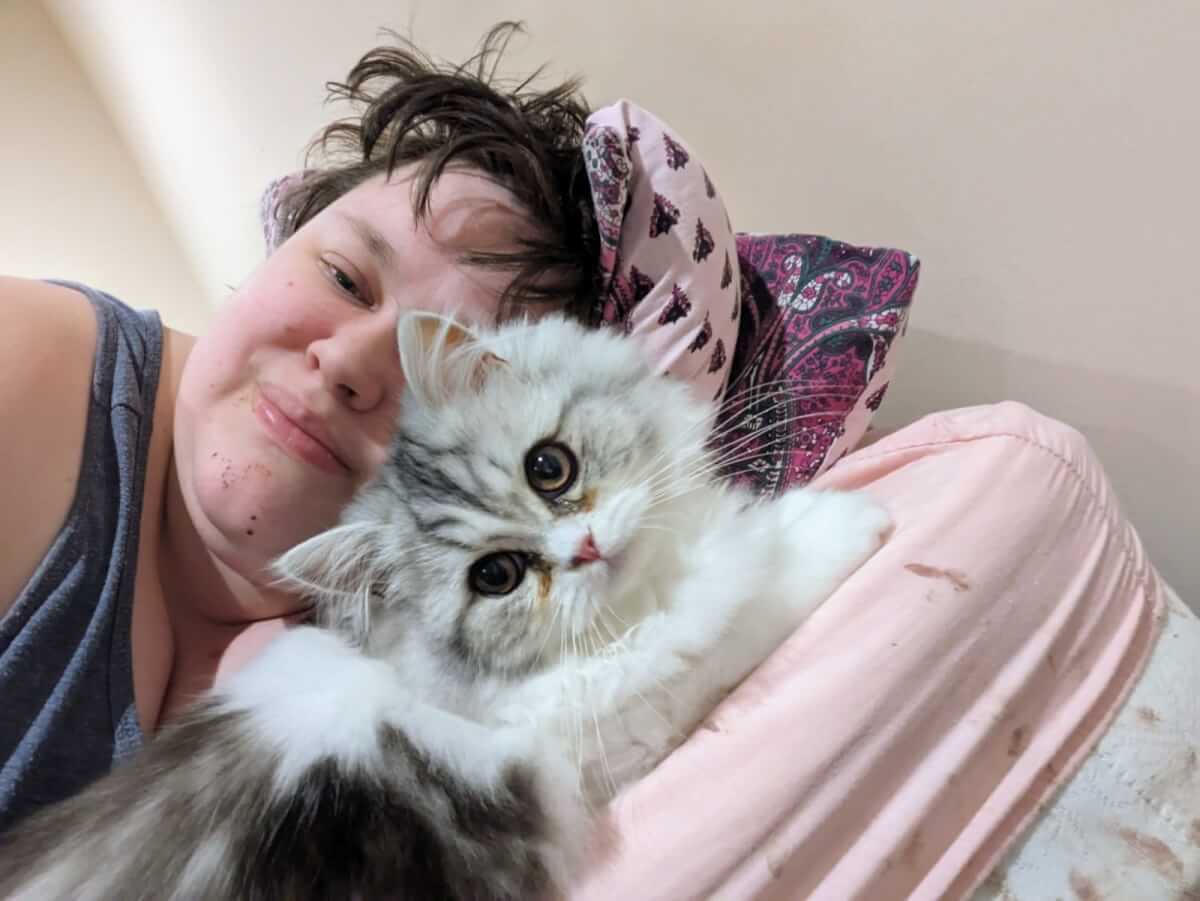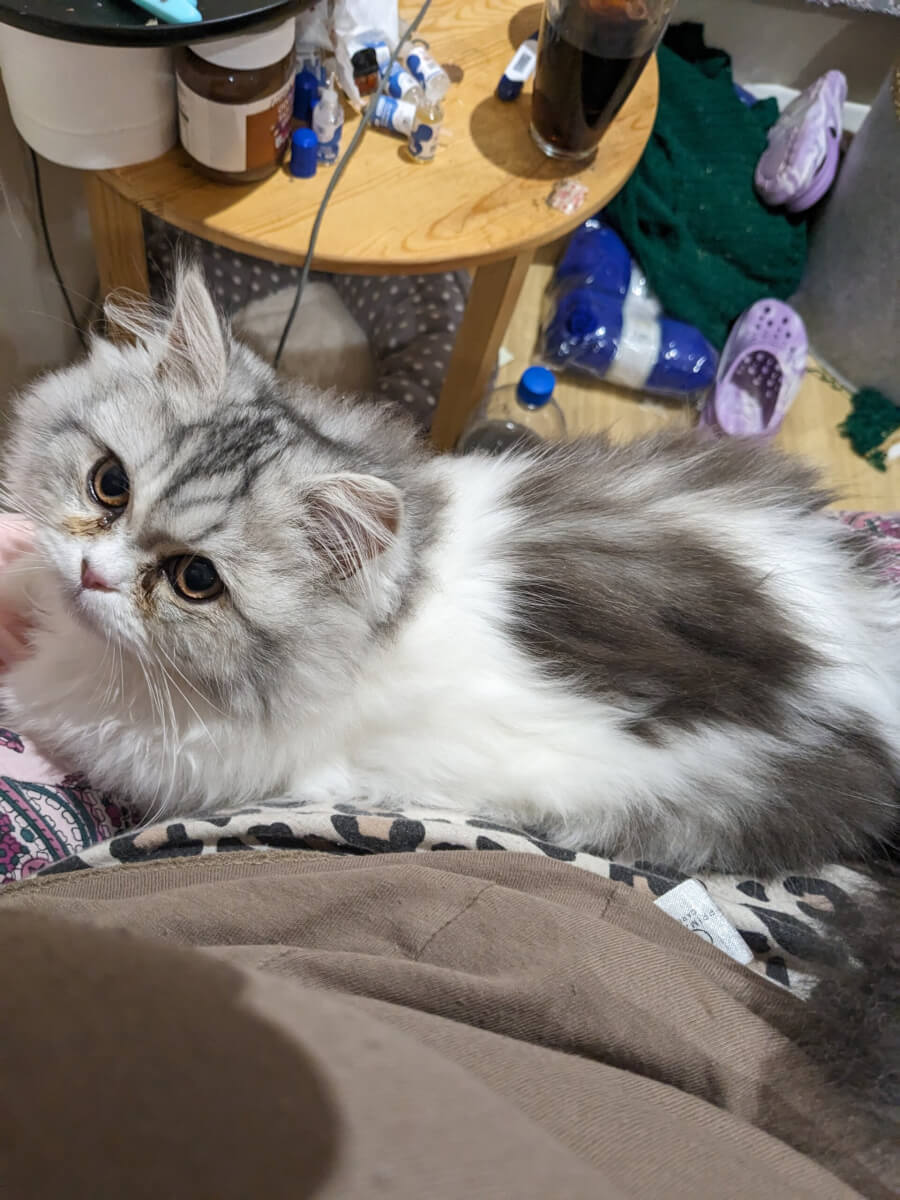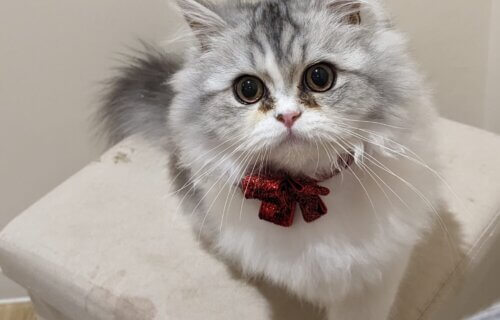💡What To Know:
- Molly Brooke lives in assisted living due to her epileptic seizures
- Maggie, a Persian kitten, changes her behavior hours before a seizure begins
- Cats have about 30 receptors in their nose that pick up on chemical changes in our bodies
BIRMINGHAM, United Kingdom — A pet cat in the United Kingdom is not only a companion, but a superpowered lifesaver. A woman with epilepsy says that her cat can detect her seizures up to eight hours in advance.
Molly Brooke suffers from as many as nine epileptic episodes weekly, which leave her body rigid and cause an “uncontrollable tingling” in her arms and legs. Since being diagnosed with epilepsy at the age of eight, she has faced challenges in managing her condition. However, her life changed with the arrival of a feline companion.
In September 2023, Molly acquired Maggie, a four-month-old Persian kitten, for approximately $365. The 30-year-old, who is unable to work due to her epilepsy, soon observed changes in Maggie’s behavior preceding her seizures.
“I got her as a companion but she’s turned out to be so much more. Within the first week of having her, I noticed she’d go into manic mode and become playful by running around working all her energy,” Molly says in an online video post.
“Then she then calmed down completely and went into monitor mode, not leaving my side. If I got up to leave the room to get a cup of tea, she’d follow me. When this kept happening, it clicked that she was looking out for me because cats can sense chemical changes in our bodies,” Brooke continues.
“During my seizures, she’ll lie on my arm and encourage me to stroke her- like she’s trying to distract me. This is all her choice, she’s just acting on instinct. It’s so touching that she is looking out for me.”

“Because I have autism as well, it affects how my brain works and in turn how effective the medication is,” Molly explains.
“Being diagnosed with epilepsy so young was a good thing because I never had a typical social life for someone my age. Things like having a normal line of work, learning how to drive and or going to university were never on the cards for me, so in a way, I’m grateful for my early diagnosis as it’s saved me a lot of disappointment. I think it would’ve been harder if I had those aspects of freedom taken away from me as an adult.”
Molly decided to get a furry companion to keep her company last year since both stress and anxiety trigger her condition. Molly debated getting a mixed-breed cat, but there were certain personality traits that she was after and researched reputable breeders.

“When I first clicked onto the site, there was a picture of Maggie front and center with her litter and she immediately caught my eye. I messaged the breeder and asked lots of questions about her temperament and they sent me lots of photos and videos of her that confirmed she was the one for me. After arranging for Maggie to be delivered to her, the cat started picking up on her owner’s condition ‘almost immediately.'”
“Cats have around 30 receptors in their nose which means Maggie can pick up on chemical changes in my body,” Molly adds.
“This enables her to alert me in her special way. Sometimes she’s way ahead of me and knows up to eight hours before my seizure. When they happen, which is usually in my sleep, she’ll put her head up to mine. Her affection helps take my mind off what’s happening to me and is very calming. But being near or sitting in my lap when having a seizure, she helps stabilize my movement.”
“When she’s not looking after me, she’s very laid back but loves a play now and then! Her favorite treats are freeze-dried shrimps and she’s obsessed with plastic bottle lids. She’s always eyeing up my drinks and I, of course, give in every time- she’ll bounce the lid around and then carry it off in her mouth,” Molly concludes in her video.
“I’ve had this condition all my life and it can be a really scary and lonely place but now I feel not so alone. She’s the best cat I could’ve hoped for and my very best friend.”
You might also be interested in:
- Half of American pet owners say their soulmate is, who else? Their pet!
- What should you do if someone starts having a seizure?
- Epilepsy drug provides surprising joint protection against arthritis
South West News Service writer Holly Mei-Yu Stafford contributed to this report.


What if Mollys seizures and the cat’s hyperactivity were caused by environmental factors? The cat behavior may be affected earlier because the feline has more sensory receptors for this substance than Molly. If Molly abruptly changed her environment after the feline “reacted” would she still have a seizure?